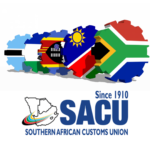Namibia is a member of the Southern African Development Community (SADC). Some of the objectives of SADC are to achieve development, peace and security, and economic growth, to alleviate poverty, through regional integration, built on democratic principles and equitable and sustainable development.
The Organisation has adopted a number of Protocols covering a wide range of areas including energy, education, forestry, fisheries, services etc. On the trade front, the SADC Trade Protocol (as amended), which entered into force in 2001, establishes a free trade area amongst the 15 member organisation through the Regional Indicative Strategic Development Plan (RISDP). The RISD is a comprehensive development and implementation framework guiding the regional Integration agenda SADC over a period of fifteen years (2005-2020). The SADC Protocol on Trade calls for member states to eliminate barriers to trade, ease customs procedures, harmonise trade policies based on international standards, and prohibit unfair business practices.
SADC Treaty and its amendments
The objectives of SADC shall be to:
- Achieve development and economic growth, alleviate poverty, enhance the standard and quality of life of the peoples in Southern Africa and support the socially disadvantaged through regional integration;
- Evolve common political values, systems and institutions;
- Promote and defend peace and security;
- Promote self-sustaining development on the basis of collective self-reliance, and the interdependence of Member States;
- Achieve complementarity between national and regional strategies and programmes;
- Promote and maximise productive employment and utilisation of resources of the Region;
- Achieve sustainable utilisation of natural resources and effective protection of the environment;
- Strengthen and consolidate the long standing historical, social and cultural affinities and links among the peoples of the Region.
SADC Regional Indicative Strategic Development Plan
The Southern African Development Community (SADC) started the process of reviewing the operations of its institutions in 1999. This process comprised the alignment of regional priorities, review of policies and strategies, and the restructuring of the supporting institutional framework. Such reviews are necessary if we are to adapt our developing strategies to the needs and realities of an ever-changing world, with its new challenges, opportunities and complexities.
The challenges facing the Regional Indicative Strategic Development Plan (RISDP) and the Strategic Indicative Plan for the Organ (SIPO) have to be seen against the background of a region that has gained a lot of experience in promoting regional co-operation and integration. We have to build on this experience as we implement the RISDP and SIPO.
SADC Protocol on Trade
The objectives of this Protocol are:
- To further liberalise intra-regional trade in goods and services on the basis of fair, mutually equitable and beneficial trade agreements, complemented by Protocols in other areas.
- To ensure efficient production within SADC reflecting the current and dynamic comparative advantages of its members.
- To contribute towards the improvement of the climate for domestic, cross-border and foreign investment.
- To enhance the economic development, diversification and industrialisation of the Region. – To establish a Free Trade Area in the SADC Region.
SADC Protocol on Trade in Services
The objectives of this Protocol are to:
- Progressively liberalise intra-regional trade in services on the basis of equity, balance and mutual benefit with the objective of achieving the elimination of substantially all discrimination between State Parties and a liberal trading framework for trade in services with a view to creating a single market for trade in services;
- Promote sustainable economic growth and development, thereby raising the standard and quality of life of the people of Southern Africa, supporting the socially disadvantages and alleviating poverty through regional integration in the area of services;
- Enhance economic development, diversification, local, regional and foreign investment in the services economies of the Region;
- Ensure consistency between liberalisation of trade in services and the various Protocols in specific services sectors;
- Pursue services trade liberalisation, while fully preserving the right to regulate and introduce new regulations; and
- Enhance the capacity and competitiveness of the services sectors of State Parties.
SADC Regional Agriculture Policy
The Policy specific objectives are to:
- Enhance sustainable agricultural production, productivity and competitiveness;
- Improve regional and international trade and access to markets of agricultural products;
- Improve private and public sector engagement and investment in the agricultural value-chains; and
- Reduce social and economic vulnerability of the region’s population in the context of food and nutrition security and the changing economic and climatic environment.








